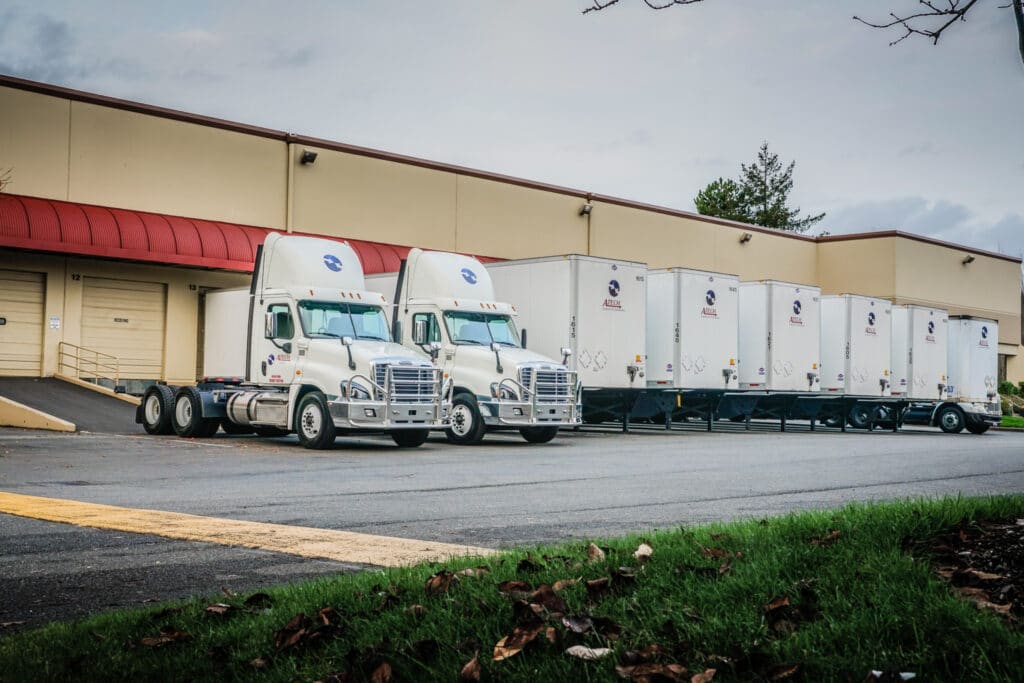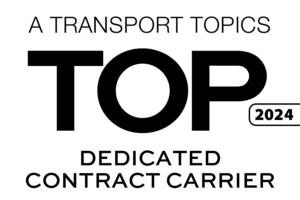
In most cases, insurance is unavoidable and a federal requirement. It is necessary for the truck fleeting industry as it ultimately relieves financial stress and provides you with protection if a third party becomes injured in an accident. This provides you with the financial assistance to bounce back and recover faster than you normally would without it.
Now, just because trucking insurance is a must, does not mean it’s fair to spend an outrageous amount of money to be insured. The good news is that there are many different directions a fleet can go to help control and survive the rising insurance costs.
Why is it such a challenge to find affordable trucking insurance? Well, it’s no secret that heavy vehicles transporting large amounts of cargo across the nation can be dangerous. Accidents happen every day in this industry. These liabilities are too risky to underwrite according to commercial insurance providers.
Below there are a few things to consider when trying to control insurance costs.
THE REPTILE THEORY
Within the past decade, the frequency of plaintiff attorneys becoming involved in truck accidents has increased dramatically. Nick Saeger, Sentry Insurance’s assistant vice president of transportation product, pricing, and underwriting, stated in an interview that “the techniques that plaintiff attorneys are using to drive up verdicts and settlements are outpacing defense attorneys.”
Saeger, describes this as the Reptile Theory, and when “plaintiff attorneys appeal to the feelings of the jury by arguing about the trucking company — sometimes leaving out the facts of the case entirely. Tactics like those drive up the values of cases, leading to nuclear verdicts.”
Saeger brings up the evidence of litigation financing by describing how “attorneys have their expenses financed by a third-party investor, which entices them to take cases to trial with an aim towards larger awards. Most times, the jury isn’t even aware that litigation financing exists.”
PRIORITIZING SAFETY
As mentioned before, the safety measures that you implement play a major role in staying at bay from costly fleet insurance.
There’s no denying that technology can help reduce accidents on the road, but even running newer trucks can be a factor in how much your insurance costs. Although they are supplied with more advanced safety features and equipment to avoid crashes, the ones that are in a collision will cost more money to repair. Insurers like to point to features such as video camera systems, accessing data from logging devices, and investing in a driver monitoring system that encourages and boosts safety.
“One of the most important things for motor carriers to do right now is to implement — and follow — a detailed safety program,” says Dan Clements, Director of Sales Transportation at Sentry Insurance. “Your policies involving hiring, training, drug testing, firing, and more will become the focus in the event of a claim. Proving that your drivers and culture prioritize safety will be very important.”
Gallagher Bassett’s Dunlap says that the type of attorney fleets engage with also matters when determining cost. “Highly skilled plaintiff lawyers focus today on aggravating factors associated with an accident, allegations of spoliation of evidence, negligent hiring/training/supervision, vehicle maintenance, hours of service violations, poor compliance with … safety regulations, and poor CSA scoring.”
CULTURE OF PREVENTION
Commercial auto insurance has been decreasing in profitability since the early 2000s.
Paul Calhoun, vice president of Hub International, a global insurance brokerage, states that “the best strategy [against rising insurance costs] is to work toward developing a ‘culture of prevention’ – that means putting safety first, starting with driver hiring practices. Those trucking companies not doing this are being driven into a high-premium segment.”
Calhoun is confident that fleets that have poor safety practices pay higher premiums for coverage.
PLAYING OFFENSE
Over the last 18 months, trucking bankruptcies have nearly tripled.
With this, Gallagher Bassett’s Dunlap sees that “the best offense for getting insurance costs in line is to become a well-run company. Many fleets today simply cannot afford a straight guaranteed-cost program that effectively transfers all risk to the insurance sector for a reasonable premium. In fact, a significant number of fleets are now forced to forego excess coverage, struggling with just the premiums on their primary layer of coverage.”
LARGE DEDUCTIBLE PROGRAM
Another tip would be to opt for a large-deductible program.
Dunlap explains that with these programs, “the carrier’s claims department is likely to manage the losses, thereby making the buyer subject to the strengths or weaknesses of that claims department.” He adds that it “allows the insured the ability to control the claims process, either internally or through the retention of a qualified claim administrator.” Then the carrier can “truly manage the process by hiring its choice of counsel; implementing its litigation philosophy; controlling its claims data, and learning risk mitigation efforts from its losses.”
FRONTING INSURANCE POLICY
Fleets may also opt for a “fronting” insurance policy. This is explained as “policies which allow motor carriers to reduce premium costs and maintain control over their claims while at the same time ensuring compliance with federal and state financial responsibility regulations,” by Bobby Hanlon, partner and trucking practice co-chair of law firm Goldberg Segalla LLP.
Hanlon says that fronting policies are oftentimes referred to as matching deductible policies and how “the trucking company remains responsible for its own defense and losses”, which leaves the insurance company acting as a guarantor of the debt.
At Atech Logistics, we are aware that trucking fleet insurance can be pricey and they continue to increase. In order to keep our trucks, team, fleets, and community protected, we seek a quality level of insurance and take safety and prevention measures to keep costs at bay. From the warehouse to the destination, safety is a top priority for us.

